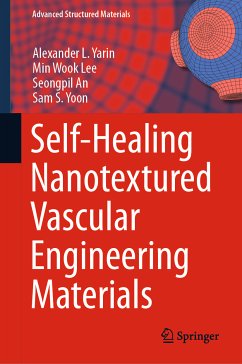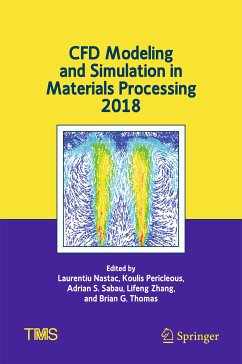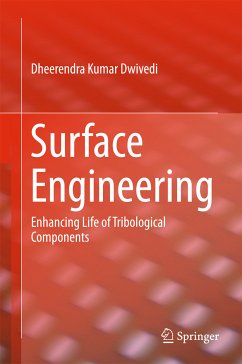
Active Protective Coatings (eBook, PDF)
New-Generation Coatings for Metals
Redaktion: Hughes, Anthony E.; Buchheit, Rudolph G.; Zheludkevich, Mikhail L.; Mol, Johannes M. C.
Versandkostenfrei!
Sofort per Download lieferbar
72,95 €
inkl. MwSt.
Weitere Ausgaben:

PAYBACK Punkte
36 °P sammeln!
This book covers a broad range of materials science that has been brought to bear on providing solutions to the challenges of developing self-healing and protective coatings for a range of metals. The book has a strong emphasis on characterisation techniques, particularly new techniques that are beginning to be used in the coatings area. It features many contributions written by experts from various industrial sectors which examine the needs of the sectors and the state of the art.The development of self-healing and protective coatings has been an expanding field in recent years and applies a ...
This book covers a broad range of materials science that has been brought to bear on providing solutions to the challenges of developing self-healing and protective coatings for a range of metals. The book has a strong emphasis on characterisation techniques, particularly new techniques that are beginning to be used in the coatings area. It features many contributions written by experts from various industrial sectors which examine the needs of the sectors and the state of the art.
The development of self-healing and protective coatings has been an expanding field in recent years and applies a lot of new knowledge gained from other fields as well as other areas of materials science to the development of coatings. It has borrowed from fields such as the food and pharmaceutical industries who have used, polymer techniques, sol-gel science and colloidosome technology for a range encapsulation techniques. It has also borrowed from fields like hydrogen storage such as from the development of hierarchical and other materials based on organic templating as "nanocontainers" for the delivery of inhibitors. In materials science, recent developments in high throughput and other characterisation techniques, such as those available from synchrotrons, are being increasing used for novel characterisation - one only needs to look at the application of these techniques in self healing polymers to gauge wealth of new information that has been gained from these techniques.
This work is largely driven by the need to replace environmental pollutants and hazardous chemicals that represent risk to humans such as chromate inhibitors which are still used in some applications.
The development of self-healing and protective coatings has been an expanding field in recent years and applies a lot of new knowledge gained from other fields as well as other areas of materials science to the development of coatings. It has borrowed from fields such as the food and pharmaceutical industries who have used, polymer techniques, sol-gel science and colloidosome technology for a range encapsulation techniques. It has also borrowed from fields like hydrogen storage such as from the development of hierarchical and other materials based on organic templating as "nanocontainers" for the delivery of inhibitors. In materials science, recent developments in high throughput and other characterisation techniques, such as those available from synchrotrons, are being increasing used for novel characterisation - one only needs to look at the application of these techniques in self healing polymers to gauge wealth of new information that has been gained from these techniques.
This work is largely driven by the need to replace environmental pollutants and hazardous chemicals that represent risk to humans such as chromate inhibitors which are still used in some applications.
Dieser Download kann aus rechtlichen Gründen nur mit Rechnungsadresse in A, B, BG, CY, CZ, D, DK, EW, E, FIN, F, GR, HR, H, IRL, I, LT, L, LR, M, NL, PL, P, R, S, SLO, SK ausgeliefert werden.












